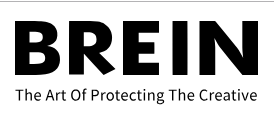 While plenty of people monitor the world of online copyright infringement, here at TorrentFreak we’ve continuously dived deeper than most into almost every anti-piracy campaign proposed or launched in the last 15 years.
While plenty of people monitor the world of online copyright infringement, here at TorrentFreak we’ve continuously dived deeper than most into almost every anti-piracy campaign proposed or launched in the last 15 years.
It’s safe to say that pirates generally hate all attempts to deny them access to free content but whether people like it or not, rightsholders will always seek to protect their content. The big question is how and one doesn’t have to be a proponent or opponent of piracy to recognize that there are levels to anti-piracy campaigns that can make some immediately repugnant.
Anti-Piracy Campaigns Come in Different Flavors
For example, organized copyright-trolling campaigns, ones that cynically attempt to exert maximum financial pressure on ordinary families with zero compassion, represent the worst examples. Equally, if we acknowledge the rights of artists of all kinds to limit the illegal spread of their work, there are campaigns that attempt to do so more intelligently, which renders them worthy of pragmatic analysis.
One such initiative is being undertaken by Dutch anti-piracy outfit BREIN. We reported the full details earlier this month and at first view, one could be forgiven for thinking this is simply another project to send notices to BitTorrent users in the hope they stop sharing content. But it’s sharper and more targeted than that and as a result, could achieve its aims without resorting to the bottom-feeding tactics of its trolling counterparts.
‘Openness’ is Rarely a Word Associated With Anti-Piracy
Firstly, BREIN is being completely open about what it intends to do, even setting out the “rules of the game” in advance. That is a rarity in today’s environment, if not unique.
For example, BREIN says it isn’t interested in so-called “hit and run” downloaders, i.e BitTorrent users who download a movie and don’t sit around seeding for hours. This means that the vast majority of pirates will be of no interest to BREIN. Instead, the anti-piracy group will focus on those who seed content for long or frequent periods.
It’s important to recognize, of course, that these prolific seeders are important to the ecosystem because, without them, torrent swarms will be much less healthy. However, what BREIN appears to be doing here is drawing a line in the sand. To make a speeding analogy, those who break the limits by a few miles per hour every now and again will fly under the radar but persistent, heavy speeders who keep getting noticed could become targets because they pose the most risk.
Legal Action But Not Copyright-Trolling
Even then, those who become of interest won’t find lawyers at their door. Providing ISPs cooperate, they’ll receive a notice asking them to stop and it won’t demand any form of payment either. Compare this to the copyright trolls who spot an IP address in a swarm for a few seconds and then file a lawsuit demanding thousands in compensation. There’s a huge difference.
Of course, BREIN’s plan does have a potential sting in the tail. For persistent, longer-term seeders it could mean an approach for a cash settlement or at the least a formal agreement to cease-and-desist. But BREIN could do this anyway under current law, immediately and without any notice.
Instead, it is choosing not to do so within a framework that appears to acknowledge that targeting petty sharers (the majority) won’t be as effective in preventing sharing as targeting their sources will.
Leaving Casual Pirates Alone
Again, there will be people out there who feel any type of enforcement is unacceptable and should be rejected. However, that’s not the way things work and BREIN has a job to do, whether people like it or not. Instead, the anti-piracy group is effectively laying down its own weaker ‘legislation’ on top of existing laws and being completely transparent about who it is interested in and why they need to exercise caution.
If the scheme works (and that’s still a big if, even if it does get off the ground), BREIN won’t need to bother the little guy at all so whichever way you cut it, that is rarely considered a bad thing. And even when more significant sharers are caught, they will have plenty of opportunities to walk away without getting ‘fined’ or dragged through court.
So, as anti-piracy enforcement goes, this is quite a targeted and resource-friendly scheme. Not only is it focused, but the rules are also there for all to see, upfront with plenty of notice. People may not like them but when viewed through the prism of some of the other projects around today, it’s much more considered, limited (1,000 IP addresses targeted per month), and might even achieve some of its goals, without alienating the public.





